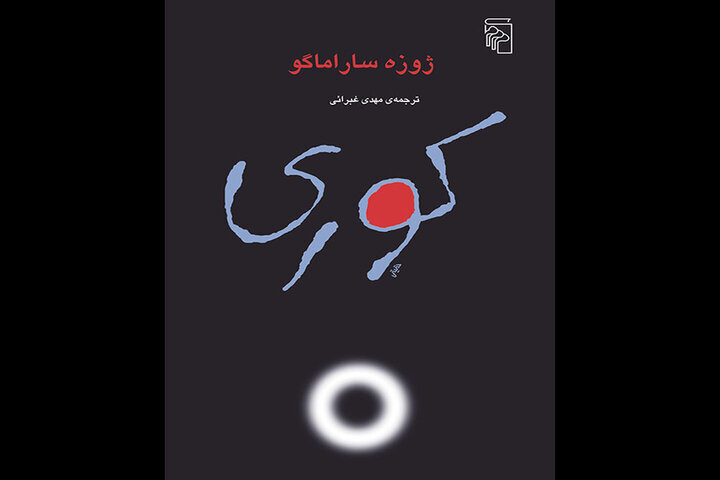Persian edition of “Blindness” republished

TEHRAN- The 56th edition of the Persian translation of Portuguese writer José Saramago’s 1995 novel “Blindness” has recently been published.
Markaz is the publisher of the book translated by Mehdi Ghabrai. The publisher released the first edition in 2000.
"Blindness" tells the story of a mysterious and sudden epidemic that causes people to lose their sight. The novel follows a group of characters who are affected by the epidemic, including a doctor and his wife, a businessman, a young woman, and a family with children.
The story begins with the doctor, who is driving to work when he realizes that he can't see anything. He is eventually joined by his wife, who also becomes blind. As they try to navigate their new reality, they encounter other blind people who are struggling to survive. The group soon discovers that the blindness is not only physical, but also emotional and psychological, as they begin to lose touch with their sense of self and their relationships with others.
The novel explores themes of isolation, loneliness, and the breakdown of society. As the blind people struggle to adapt to their new reality, they are forced to rely on each other for support and survival. However, their reliance on each other also leads to conflicts and tensions within the group.
Throughout the novel, Saramago uses his unique writing style, which is characterized by long sentences and philosophical musings, to explore the themes of the book. The novel is a powerful and thought-provoking exploration of what it means to be human, and how we respond to crisis and adversity.
Ultimately, the novel ends with a sense of hopelessness and despair, as the blind people are left to fend for themselves in a world that is no longer familiar or safe. The novel is a powerful critique of society and our ability to adapt to change, and it is a testament to Saramago's skill as a writer that he is able to create such a powerful work.
"Blindness" received widespread critical acclaim upon its release in 1995. The novel was praised for its unique exploration of the human condition, and its ability to convey the emotional and psychological effects of the blindness epidemic on its characters. The book was a bestseller in Portugal and Spain, and it quickly gained international recognition, being translated into over 30 languages. The novel won several prestigious awards, including the Prix Medicis Étranger, the Premio Planeta, and the Camões Prize.
The novel's success also led to several adaptations, including a film adaptation directed by Fernando Meirelles in 2008. The film starred Mark Ruffalo and Julianne Moore as the doctor and his wife, and it received widespread critical acclaim for its powerful and poignant portrayal of the characters' experiences. The film was nominated for several awards, including two Academy Awards for Best Foreign Language Film and Best Adapted Screenplay. In addition to the film, "Blindness" has also been adapted into a stage play, with productions in several countries around the world.
The book's accolades have continued to accumulate over the years, with many critics and scholars considering "Blindness" to be one of Saramago's greatest works. The novel has been included in numerous lists of the best books of the 20th century, including those compiled by The Guardian, The New York Times, and Le Monde. The book has also been the subject of numerous academic studies and essays, with scholars analyzing its themes, characters, and literary style.
SAB/
